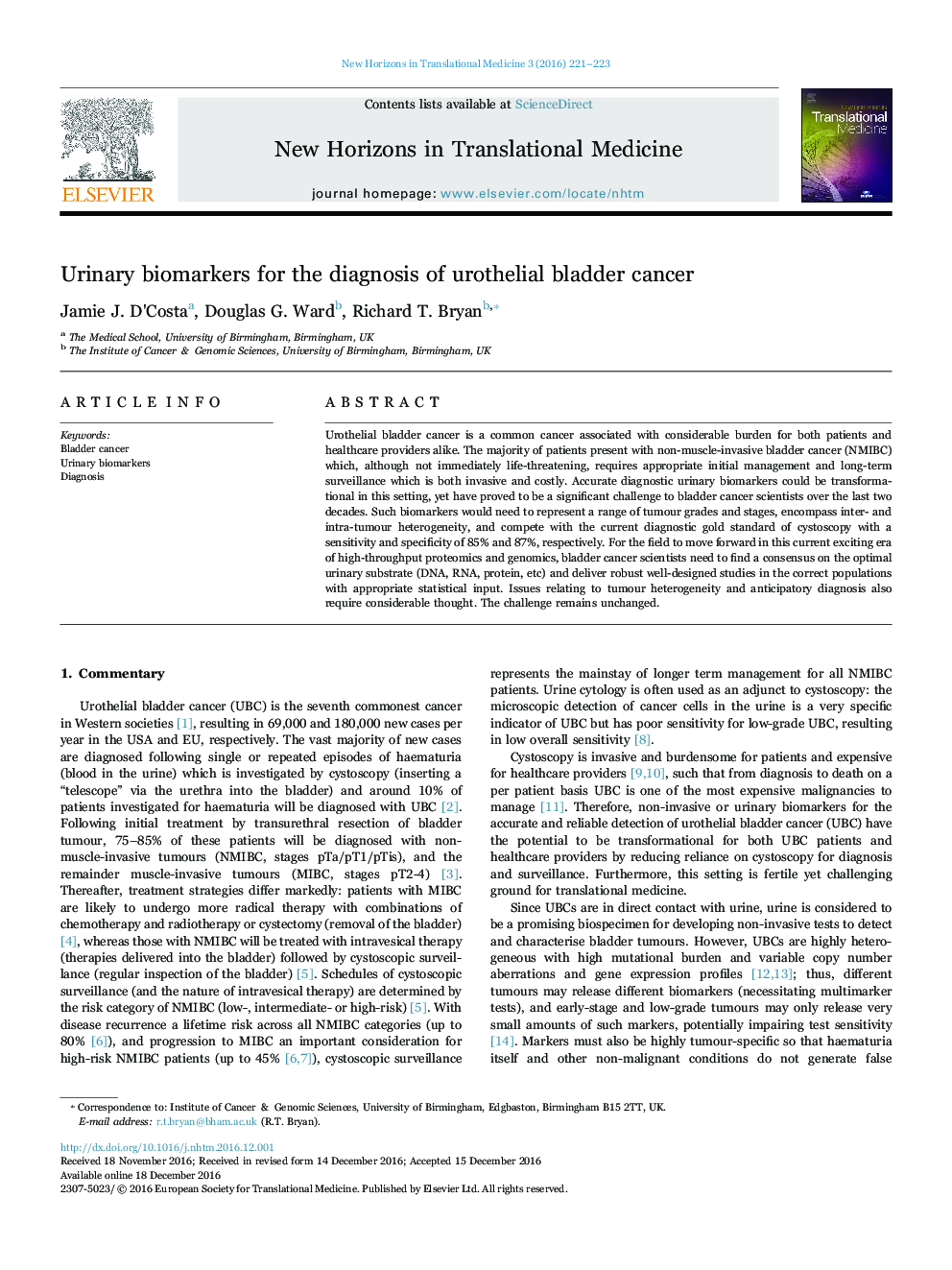| Article ID | Journal | Published Year | Pages | File Type |
|---|---|---|---|---|
| 8764682 | New Horizons in Translational Medicine | 2017 | 3 Pages |
Abstract
Urothelial bladder cancer is a common cancer associated with considerable burden for both patients and healthcare providers alike. The majority of patients present with non-muscle-invasive bladder cancer (NMIBC) which, although not immediately life-threatening, requires appropriate initial management and long-term surveillance which is both invasive and costly. Accurate diagnostic urinary biomarkers could be transformational in this setting, yet have proved to be a significant challenge to bladder cancer scientists over the last two decades. Such biomarkers would need to represent a range of tumour grades and stages, encompass inter- and intra-tumour heterogeneity, and compete with the current diagnostic gold standard of cystoscopy with a sensitivity and specificity of 85% and 87%, respectively. For the field to move forward in this current exciting era of high-throughput proteomics and genomics, bladder cancer scientists need to find a consensus on the optimal urinary substrate (DNA, RNA, protein, etc) and deliver robust well-designed studies in the correct populations with appropriate statistical input. Issues relating to tumour heterogeneity and anticipatory diagnosis also require considerable thought. The challenge remains unchanged.
Related Topics
Health Sciences
Medicine and Dentistry
Medicine and Dentistry (General)
Authors
Jamie J. D'Costa, Douglas G. Ward, Richard T. Bryan,
